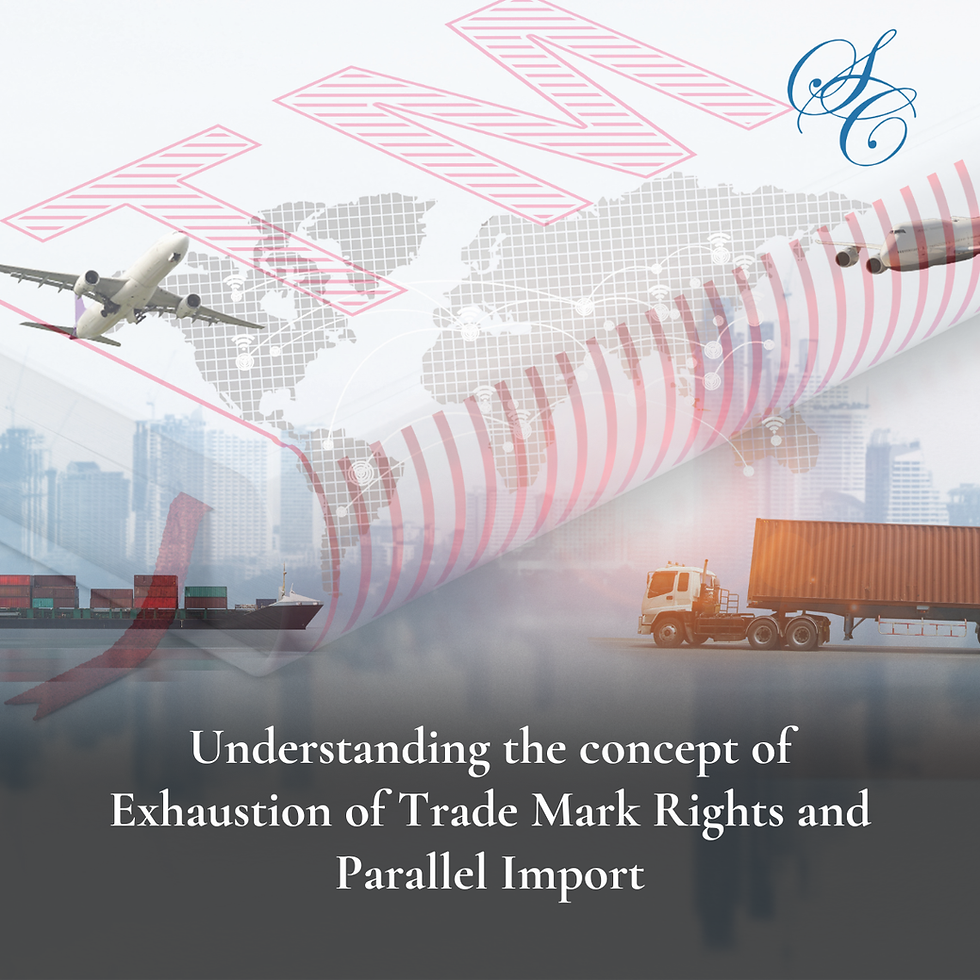Intermediaries’ Liability In Defamation Tussle
- Sarwajeet Singh
- Jun 22, 2020
- 5 min read
Our Associate, Anand Kumar discusses “Intermediaries’ Liability In Defamation Tussle “
On June 2, 2020, the Delhi High Court, in Sasikala Pushpa v. Facebook India & Ors., decided an important question concerning the role and liability of intermediaries in the context of defamation. The court clarified that intermediaries defined under the Information Technology Act, 2000 (“IT Act”) cannot be held liable for posts or pictures uploaded by third-parties on online platforms of such intermediaries.
Sasikala Pushpa (“Plaintiff”) filed a suit seeking permanent injunction against the Facebook Inc., Google LLC, Youtube LLC & Ors. (“Defendants”) from publishing, broadcasting, distributing or disseminating defamatory material, including, photographs/video/audio messages that were uploaded on the Defendants’ platforms by third-parties. As per the Plaintiff, these acts caused a grave and irreversible violation of Plaintiff’s rights, including her fundamental right to maintain dignity, right to live with dignity, right to preserve reputation, all facets of right to life under Article 21 of the Constitution of India.
The case of the Plaintiff is that she is a sitting Member of Rajya Sabha from All India Anna Dravida Munnetra Kazhagam (AIADMK) party and had held many other public offices in past. The Plaintiff has been continuously receiving threats of distribution of photographs and video on social media defaming and embarrassing the Plaintiff by making baseless/false allegations. On September 25, 2016, the Plaintiff started receiving phone calls from her friends, acquaintances and family members, regarding photographs of the Plaintiff with a man that had been uploaded on social media. According to Plaintiff the photographs did not exist, and had been morphed, fabricated, concocted and forged. She further contented that the content of the photographs was defamatory and obscene.
On the question of whether the content of the photographs was defamatory and obscene, the court observed that photographs may fall in the genre of those taken without the knowledge of the Plaintiff. However, none of them can be classified as obscene or showing the Plaintiff and the man in photograph in any scandalizing situation. Rather the court noted that the Plaintiff and the man in photograph appear to be posing for the photograph.
The court reiterated the law laid down in Precision Steels Vs. Reeta Salwan (2013) 205 DLT 695, that it is not required to put a suit to trial, at the cost of other deserving suits, if on the pleadings, it finds that the Plaintiff has not laid any foundation for succeeding. In the instant case the court observed that the Plaintiff’s claim, on a reading of the plaint, is found to be half-hearted, vague and without the requisite particulars. The court noted that the Plaintiff only vaguely pleaded that the photographs were defamatory, and tarnished her image and reputation, without disclosing the reasoning for such conclusion. Further, the court noted that the Plaintiff’s claim of defamation, in the amended pleadings and during the hearing, was premised on the following grounds, namely, (a) that the photographs were defamatory because they showed the Plaintiff with a politician belonging to a rival political party and (b) that the Plaintiff, who was an elected representative, was shown in the company of a man other than her husband. However, the court observed that there was no pleading to such effect in the plaint. Accordingly, the court held that issues cannot be framed on present subject matter of suit.
Further the court stressed on non-joinder of necessary parties as a pertinent reason for not putting the suit on trial. According to court, the Plaintiff did not implead the alleged forger/fabricator or the person who had morphed the photographs nor she had sought any direction against Defendants or against any other portal for disclosing the identity of such person. It was also noted that the Plaintiff did not implead the subject man in the photograph as necessary party to verify the fact if the photographs were morphed, fabricated or not in as much as it is that man only who was best in a position to comment on the genuineness of the photographs. Therefore, the court remarked that the Plaintiff cannot fight a proxy battle and her failure/refusal to implead the said man as Defendant to the suit gives rise to an adverse inference drawn against the Plaintiff that the photographs showing her with the said man are not morphed, forged and/or fabricated.
The court then examined whether the Defendants qualify as an ‘intermediaries’, and are entitled to protection under the safe harbour provision within meaning of Section 79 (read with Section 2 (1) (w)) of the IT Act). In other words, whether the Defendants, in the instant case, are liable for dissemination and circulation of alleged photographs and whether the Defendants are under obligation to remove it. As per the court, an intermediary is not entitled to the protection under the safe harbour provision only if, upon receiving actual knowledge from a court order or on being notified by the appropriate Government or its agency, the intermediary fails to expeditiously remove or disable access to such material. It follows that just because any information on the internet is offensive or causes inconvenience, danger etc. to the Plaintiff, it does not entitle the Plaintiff to call upon the intermediary to remove that information/content or to disable access thereto. Also, the intermediary is not liable to do so. The court held that the Plaintiff must make out a case of the information/content being actionable in law before putting the intermediary under an obligation for removal of such impugned information/content. The intermediary is not liable merely because the information/content may be an irritant.
Lastly, on the question of photographs being violative of the privacy of the Plaintiff the court observed that the right claimed by the Plaintiff qua her meeting at her residence has to be balanced with the right of the public to know the identity of the person who the Plaintiff meets and hobnobs with. This question becomes more important when the Plaintiff, being a politician and representative of the people, meets with persons from rival political parties. The court observed that if such meetings with members of rival political parties, which the Plaintiff wants to keep discreet from the public, are not of interest to the public for the purposes of maintaining purity of administration and law making, little else would qualify as of public interest. Accordingly, the court held that, in a case like this, public interest far outweighs the private interest of the Plaintiff, and in absence of any material plea to be put on trial, the Plaintiff is not entitled to any relief claimed. Consequently, the suit must fail.
Citation: Sasikala Pushpa v. Facebook India & Ors – CS(OS) 510/2016, decision dt. June 2, 2020 by Delhi High Court.




Comments